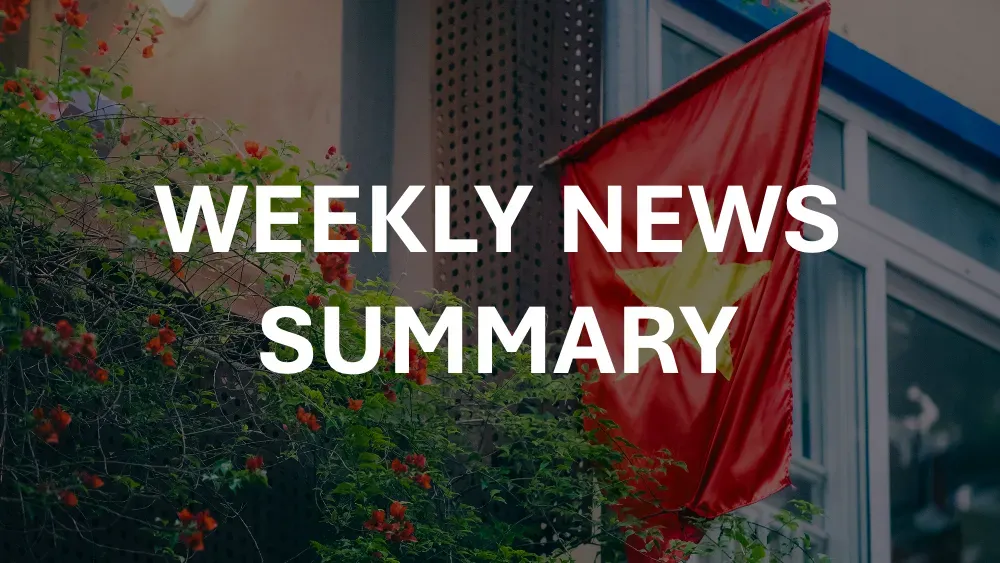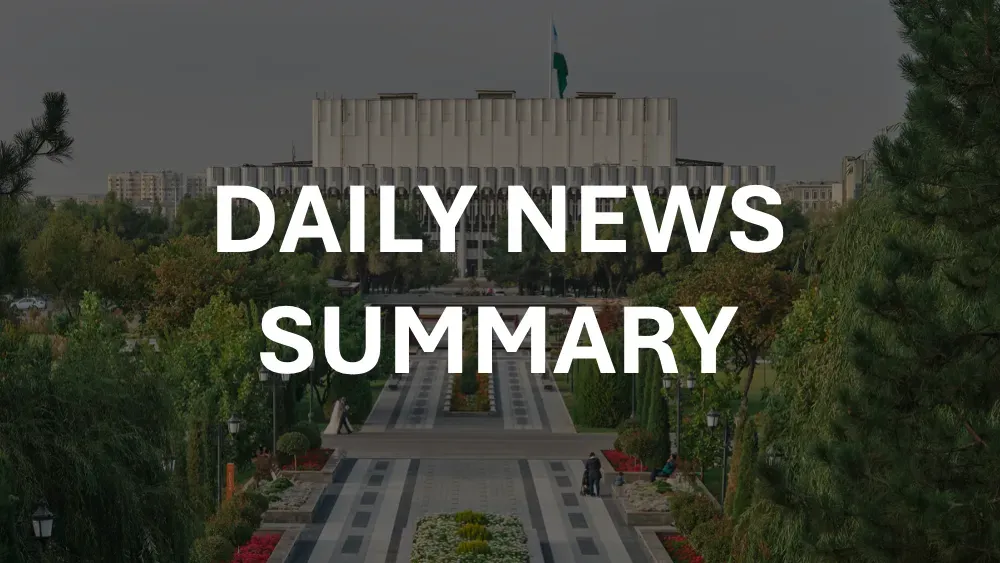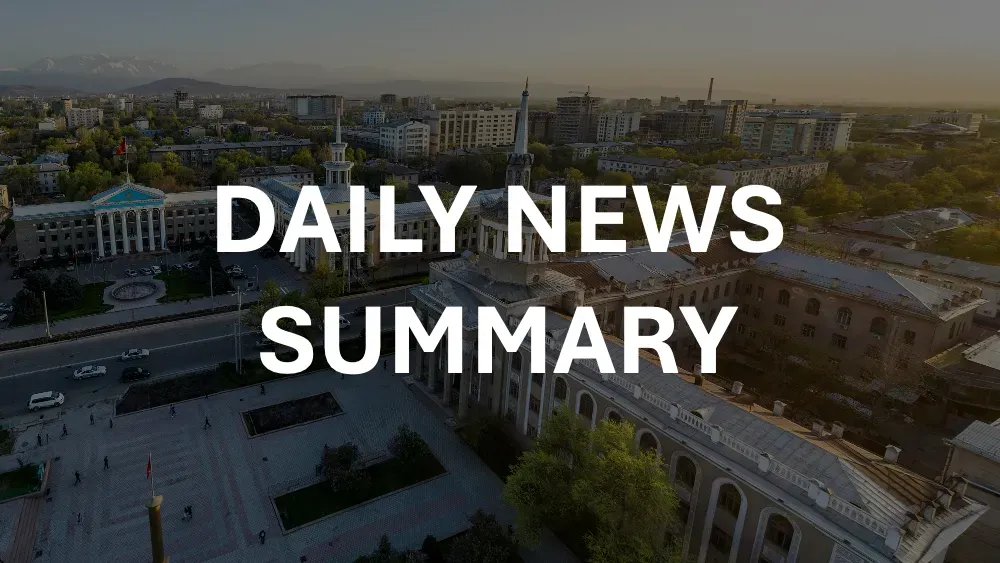This weekly digest showcases just 10 stories. Daily subscribers receive comprehensive intelligence briefs with 40 of the top stories organized by category. Don't miss the stories that matter.
Subscribe to Daily →
October 31, 2025 to November 6, 2025
This week's top 10 stories from Vietnam, selected from our daily intelligence briefs.
1. Party Central Committee Closes 14th Plenum, Advances Politburo and Secretariat Slate for Congress XIV
The 14th plenum of the 13th Party Central Committee convened in Hanoi for two days and closed having endorsed the proposed size and preliminary lineup for the next Politburo and Secretariat, charging the Politburo and the Congress XIV Personnel Subcommittee to finalize candidate lists for decision at the upcoming 15th plenum. Delegates approved preparatory items for the 14th National Congress, advanced revisions to working regulations for core party organs, and adopted the review of Resolution 18 on streamlining the political apparatus — including rollout of a two‑tier local government model — signaling continued organizational consolidation ahead of the Party Congress.
Leadership changes included the appointment of Trần Sỹ Thanh (Hanoi chairman) as Head of the Central Inspection Commission, succeeding Nguyễn Duy Ngọc, who will take on new duties. General Secretary Tô Lâm emphasized strict selection criteria for top posts — strategic vision, integrity, execution capacity and digital competence — and pushed for clearer authority lines, outcome‑based public finance, integrated population/land/welfare/business data and one‑stop digital services. The measures underline a personnel‑centric strategy to sustain high growth and governance reform in the run‑up to Congress XIV.
Local Coverage: vietnamplus.vn, baotintuc.vn, vneconomy.vn, thanhnien.vn, vnexpress.net, tuoitre.vn, com.vn
From daily briefs: 2025-11-06, 2025-11-07
2. Bilateral Ties Upgraded to Comprehensive Strategic Partnership with UK as Central Vietnam Recovers from Historic Floods
During General Secretary To Lam’s 28–30 October visit to London, Vietnam and the United Kingdom elevated bilateral relations to a Comprehensive Strategic Partnership, formalizing six cooperation pillars—politics/defence/security; trade/investment/finance; science/innovation/digital/health; environment/energy/green transition; education/culture/people-to-people; and regional/global coordination. Concrete commitments include plans to double bilateral trade, deepen UKVFTA/CPTPP-driven services links, develop international financial centres in Ho Chi Minh City and Da Nang, expand green finance and a Clean Energy Partnership aligned with JETP and Vietnam’s net-zero 2050 goal, and stepped-up cooperation on migration, maritime security and parliamentary exchanges; MOUs and commercial deals signed cover aircraft purchases, pharma, AI/digital, disaster risk reduction and offshore wind.
Domestically, Vietnam faces urgent recovery needs after late-October floods inundated more than 120,000 homes in central provinces; Hanoi ordered nationwide relief to ensure food and medical access to isolated areas. At APEC in Seoul, President Luong Cuong urged supply-chain unblocking, harmonized cross‑border data/payments and SME support for digital transition. Parliament reviewed 2025–2030 fiscal and investment plans emphasizing stronger growth with tighter public finance management. A high-profile Hanoi trial also opened into a US$106 million gambling ring involving former provincial officials, underscoring governance and rule-of-law pressures amid rapid economic opening.
Local Coverage: baotintuc.vn, thanhnien.vn, vietnamplus.vn, tuoitre.vn, vneconomy.vn, vnexpress.net, com.vn
From daily briefs: 2025-10-31, 2025-11-01, 2025-11-03
3. Government Orders Completion of Unified Land Database and Sets Aggressive 2025–2026 Growth Targets
On Nov. 4 the Government issued Resolution 86 directing ministries and provincial authorities to accelerate reforms to meet 2025 socio‑economic targets and lay groundwork for 2026–2030 growth. The Ministry of Agriculture and Environment is ordered to complete a unified, interoperable land database covering roughly 50 million parcels and to link outstanding land records to the national data center, while the Ministry of Finance must finalize decrees to institutionalize private‑sector development policies and in November submit programs to train 10,000 CEOs and cultivate 1,000 flagship enterprises.
Macro directives stress coordinating prudent monetary policy with appropriately expansionary fiscal measures, channeling credit to production, and tightening oversight of gold, securities, bonds and real estate. Quantitative targets are aggressive: GDP growth of at least 8% in 2025 and 10% in 2026, 100% public investment disbursement and a minimum 25% revenue overrun. The plan also advances “Go Global” initiatives, green/ESG project criteria, updated energy policy for 2026–2030, and preparations for major rail, port, airport, LNG and nuclear projects—signalling a push for rapid infrastructure-led growth with tighter financial supervision.
Local Coverage: com.vn
From daily brief: 2025-11-07
4. Draft E‑Commerce Law Sets Liability for Platforms, Livestream Sellers, and Foreign Operators
Vietnam’s Ministry of Industry and Trade has submitted a draft E‑Commerce Law (7 chapters, 48 articles) to the National Assembly to unify fragmented rules, strengthen consumer protection and align with international obligations. The bill codifies responsibilities for e‑commerce platforms, social networks with commercial functions, multi‑service platforms and support service providers; requires domestic sellers to verify identity via VNeID and foreign sellers to present legal documentation; mandates data retention for audits; and tightens enforcement against counterfeits and IP infringement. New obligations explicitly cover livestream commerce and affiliate marketing, while foreign platforms must establish or authorize a legal entity in Vietnam to handle taxes, disputes and consumer protection.
The draft also modernizes administration by shifting to risk‑based, post‑audit and fully digital procedures. The initiative responds to rapid sector growth (20–25% annual expansion and now about 10% of retail) and addresses longstanding regulatory gaps: Minister Nguyen Hong Dien called passage “urgent” to institutionalize Party guidance on the digital economy and meet Vietnam’s international commitments.
Local Coverage: vneconomy.vn
From daily brief: 2025-11-05
5. Draft Amendments Expand HCMC’s Special Policy Powers, Add Free Trade Zone Framework
Vietnam’s Ministry of Justice has vetted a draft National Assembly resolution amending Resolution 98/2023 to broaden Ho Chi Minh City’s special policy toolkit, notably by expanding transit-oriented development (TOD) from strictly transport infrastructure to comprehensive urban development. The proposal would allow the People’s Committee to finance standalone land clearance and resettlement for TOD projects around metro stations, depots and along major corridors such as Ring Road 3; combine transport works with housing, commercial and public facilities; and set select technical and land‑use criteria that diverge from national urban planning standards so long as infrastructure and environmental safety are maintained. The city would also be permitted to retain 10% of revenues from TOD land‑value capture to reinvest in local rail and related transport.
Separately, the draft establishes a legal framework for an HCMC Free Trade Zone, granting city authorities the power to define and adjust FTZ boundaries, expedite land allocation without public auctions for non‑housing projects, and apply tailored customs, land and investment incentives alongside streamlined procedures. If adopted, the measures would strengthen HCMC’s fiscal and regulatory autonomy to accelerate urban redevelopment and trade facilitation, but they raise questions about alignment with national planning norms and oversight of incentive use.
Local Coverage: tuoitre.vn
From daily brief: 2025-11-02
6. Government Moves to Tame Gold Volatility and Cool Housing Prices as 2025 Growth Targets Hold
Vietnam’s government announced coordinated steps to curb gold-market volatility and cool housing prices while keeping its 2025 GDP growth target above 8%, Deputy Prime Minister Le Thanh Long told the National Assembly. Public investment disbursement reached 51.7% (VND 465 trillion) as of Oct. 23—slightly ahead of last year—though project consolidation and policy time lags slowed progress. To address large domestic–world gold price gaps (which swung from nearly VND 20 million to VND 1 million per tael), authorities are tightening inspections, amending Decree 24 to limit market concentration and preparing a national gold exchange that will start with physical gold and later add derivatives; nine‑month 2025 gold transactions totalled VND 23.3 trillion.
On housing, the government will propose Land Law fixes focused on valuation and accelerate social housing delivery (117,000 units completed to date and roughly 60% of a 1 million‑unit pipeline underway) to improve affordability. Le Thanh Long signalled stronger enforcement—“If bank inspectors can’t handle it, the Government Inspectorate will step in”—indicating a willingness to use regulatory and market infrastructure tools to stabilise asset markets without loosening the government’s growth ambitions.
Local Coverage: com.vn, vietnamplus.vn, baotintuc.vn, baotintuc.vn, tuoitre.vn, vnexpress.net, vietnamplus.vn
From daily brief: 2025-10-31
7. Leadership Sets Timeline for State-Economy Resolution and New Growth Model Centered on Innovation
Vietnam’s top leadership signalled a shift to a state‑led growth model centered on science, technology and innovation, with the Politburo and Central Committee accelerating a year‑end resolution on the state economy and another on culture, and immediate post‑14th Party Congress deliberations on comprehensive development reforms, General Secretary To Lam said. Leaders explicitly defend a prominent role for the state in capital, land and mineral resources while pursuing productivity gains through science-driven policies.
Prime Minister Pham Minh Chinh pressed for ambitious macro targets—above 8% growth for 2025 and moving toward 9–10% by 2030—to hit a projected $800–$1,000 billion economy by 2030, arguing that these targets require urgency on three “strategic breakthroughs”: infrastructure, human capital and institutions. Policy implications include stronger decentralization to provinces, expanded public–private partnerships (highways, airports, North–South high‑speed rail), pragmatic legal reforms (including transparent direct contracting), and flexible frameworks for AI, digital, green and circular economies to avoid the middle‑income trap; logistics inefficiencies (currently 17–18% of GDP) and mobilising both state and private finance for megaprojects are highlighted as immediate challenges.
Local Coverage: thanhnien.vn, baotintuc.vn, tuoitre.vn, vnexpress.net, vietnamplus.vn, com.vn
From daily briefs: 2025-11-05, 2025-11-06
8. UN ‘Hanoi Convention’ Positions Country to Steer Global Cybercrime Cooperation and AI-Driven Defense
The UN’s new cybercrime treaty, informally dubbed the Hanoi Convention, opened for signature in Hanoi on 25–26 October 2025 with more than 2,500 delegates from 119 jurisdictions and 100+ international organizations and tech firms; 72 countries signed at launch, exceeding the 40 ratifications required for entry into force (projected circa 2027, 90 days after 40 ratifications). The 12‑chapter framework creates expedited emergency assistance mechanisms for cross‑border data access, account freezes and infrastructure blocking within hours, and standardizes evidence handling, mutual legal assistance, extradition and human‑rights safeguards — changes that could slash investigation times from months to hours and formalize lawful threat‑data sharing.
Vietnam’s role as host positions it to shape implementation and accelerate domestic reforms: officials say the treaty will catalyze updates to the Cybersecurity Law and personal‑data regulations and attract investment in data centers and cloud security. The country’s layered defenses (NCSC, sectoral SOCs and provincial CERTs) already use deep learning and reported detecting over 60% of 3.2 million blocked attacks in the first nine months of 2025, but capacity gaps persist. UNODC will lead implementation support through training and technology transfer, while stakeholders push for AI ethical safeguards (an AI code of conduct and ISO/IEC 27001 data governance) and joint “AI and Cybersecurity” capacity programs with global vendors.
Local Coverage: baotintuc.vn
From daily briefs: 2025-11-02, 2025-11-03
9. Industrial Output Accelerates 9.2% as Trade Tops $762B and Surplus Hits $19.6B in 10 Months
Official data for October and the first 10 months of 2025 show broad industrial and trade strength: industrial production (IIP) rose 2.4% month‑on‑month in October and 10.8% year‑on‑year, with cumulative IIP up 9.2% through October. Manufacturing led gains (+10.5%), while mining slipped 0.1%; standout sectors included autos (+23.5%), rubber/plastics (+17.3%) and non‑metallic minerals (+16.8%). Industrial employment rose 3.6% year‑on‑year overall, with foreign‑invested enterprises (FDI) up 4.1%.
Trade performance reinforced the recovery: ten‑month goods turnover reached $762.44 billion (+17.4%), with exports of $391.0 billion (+16.2%), imports of $371.44 billion (+18.6%) and a $19.56 billion trade surplus. Processing‑manufacturing accounted for 88.7% of exports; the FDI sector generated 75.9% of exports and a $42.39 billion surplus, while the domestic sector ran a $22.83 billion deficit. The U.S. was the top export market ($126.2 billion) and China the largest source of imports ($150.9 billion), signaling strong external demand but continued reliance on foreign investment and global supply chains.
Local Coverage: vietnamplus.vn, vneconomy.vn, vneconomy.vn, vietnamplus.vn, vietnamplus.vn
From daily brief: 2025-11-07
10. Gulf Sovereign Funds Pivot to Southeast Asia with Vietnam Emerging as Key Destination
Gulf sovereign wealth funds are redirecting capital toward lower geopolitical‑risk South and Southeast Asian markets, with Vietnam emerging as a priority thanks to political stability, pro‑business reforms and an explicit sustainability agenda. Deloitte estimates global sovereign assets at $12 trillion today, rising to $18 trillion within five years, with Gulf states holding about 40% and six of the world’s 10 largest funds; recent allocations into Vietnam target lower‑risk, long‑horizon sectors such as healthcare, education, renewables, water, agriculture and infrastructure.
Practical evidence of this shift includes the Vietnam–Oman Investment (VOI) fund’s roughly $500 million deployed since 2008 across major projects and support for IPOs such as F88 and TCBS, and plans for a new “New Era Growth Fund Vietnam” with at least $200 million in seed capital. For international investors and policymakers, the move signals stronger capital flows contingent on demonstrated governance, transparency and ESG integration, potentially accelerating Vietnam’s sectoral development while offering Gulf funds portfolio diversification in the Asia–Pacific.
Local Coverage: vneconomy.vn
From daily brief: 2025-11-06
About This Weekly Digest
The stories above represent the most significant developments from Vietnam this week, selected through our AI-powered analysis of hundreds of local news articles.
Stories are drawn from our daily intelligence briefs, which synthesize reporting from Vietnam's leading news sources to provide comprehensive situational awareness for international decision-makers.
These weekly highlights are a small sample of what's happening. Daily subscribers get comprehensive briefings with 40 top stories that connect the dots between events, track developing stories, and provide the context you need for informed decision-making.
Upgrade to Daily →






